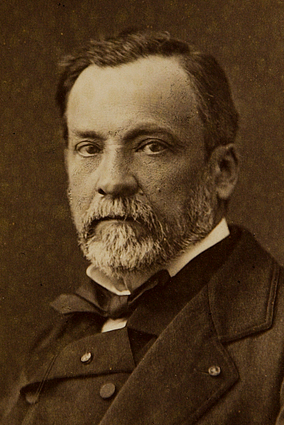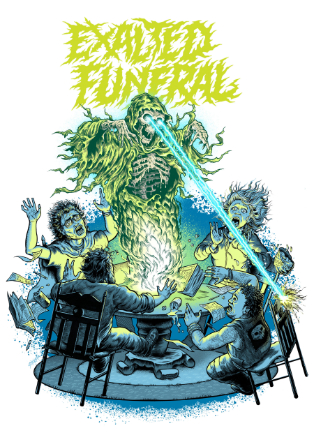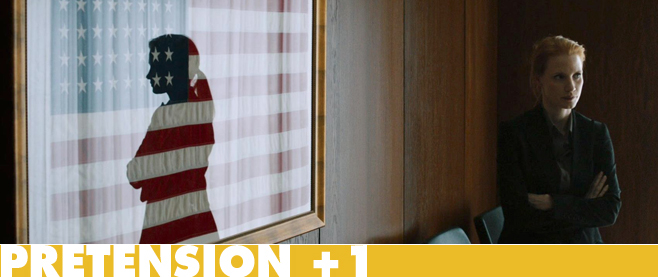Why Geek Matters
I am a white dude. I am half Cuban, a quarter Polish and a quarter German. I am straight. I’m an American. But, despite all this background, I feel no deep connection to any of these things. I feel more affinity with the culture of the so-called geek than any other. And that’s because it was the culture I chose. I am who I am because that is what I decided to be.
Admittedly, the chances of my turning out a geek were high. My father was an engineer and a voracious reader. He watched Star Trek reruns and consumed science fiction novels by the dozen. Yet, despite this upbringing, I wasn’t destined to be a geek. In middle school I became painfully aware that knowing all the names of the monsters in Star Wars wasn’t going to win me any popularity contests. I struggled mightily to dress cool. One year (it was the mid ’80s and the peak of the break dancing boom) I convinced my mom to buy me a pair of parachute pants. A bully who looked a lot like one of those gang dudes from The Warriors noticed that we were wearing matching threads. He told me that if he caught me wearing those pants again he’d kick my ass. I obeyed. Later, I discovered that I could better assimilate by wearing generic department store surf clothing. Somewhere there’s a picture of me winning the science fair decked out in an outfit by Ocean Pacific, drawstrings dangling from my waist.
[pullquote]I am who I am because that is what I decided to be.[/pullquote]
As I got older, I continued to attempt cultural camouflage. In my first year of high school (second only to college as the best time to recast your personality) I had several choices. I could go all in with the the weirdo smart kids in my magnet program or I could continue trying to pass as a normal kid. That first year I sat with the kids who liked sports. I tried to pretend like I cared about the Miami Dolphins. I folded paper footballs and played pencil break in the back of art class. But that wasn’t me. I was mightily unfulfilled by my company.
What I wanted to do was trade games in the Apple II lab. I wanted to talk to my friends about Robotech. And I wanted to find out if I could write stories as funny and weird as those of Douglas Adams. I had my Rumspringa and discovered that I wanted to be a geek. I will be 40 soon and I still consider myself a geek. I suppose that could be considered a little problematic to some.
On the surface, much of geekdom appears to be stunted and stagnant. Leigh Alexander recently wrote an impassioned deflation of geek worship which gets at many of the problems of modern geekery. The notion of the geek has blurred and lost much of its meaning. “Geek” has become a synonym for fan. It has become a label for the obsessed in a culture of obsessives. I’m with Leigh – geeks ought to be more well-rounded. Wearing geekiness as a badge of honor can seem lame in the same way that wearing pot leaves on all your clothes is super tacky if you like to smoke weed. Leigh is right. Adults should come into their own, find their own identities and own them.
There is value, though, in the notion of the geek role model. Though many of us have enjoyed uplift to a higher plane of living there are still millions stuck in podunk towns, surrounded by bullies and morons. The Internet is great at letting people know that they’re not alone, but it doesn’t magically transport you to San Francisco or Brooklyn or wherever else all of your people congregate. In cultural wastelands, it is still possible for a geek to feel alone. That’s why geek heritage is important.
 My mom wasn’t much of a geek, but she did her part to make me who I am. A good part of her contribution was keeping our bookshelves stocked with encouraging reads. One of my favorite books when I was very young was The Value of Believing In Yourself: The Story of Louis Pasteur. That corny self-help book stuck with me because it was about a guy who was a rebel and an iconoclast, but also a nerd. He stuck to his guns and used science to prove what he knew to be true. To me, being a geek isn’t just about liking Star Wars, anime, Firefly or whatever.
My mom wasn’t much of a geek, but she did her part to make me who I am. A good part of her contribution was keeping our bookshelves stocked with encouraging reads. One of my favorite books when I was very young was The Value of Believing In Yourself: The Story of Louis Pasteur. That corny self-help book stuck with me because it was about a guy who was a rebel and an iconoclast, but also a nerd. He stuck to his guns and used science to prove what he knew to be true. To me, being a geek isn’t just about liking Star Wars, anime, Firefly or whatever.
Geekdom is a culture of knowledge and curiosity, of obsessive interest in the arcane. It is a culture interested in facts and reason. If geekdom has a religion, it is science. And if it has saints they are Galileo, Marie Curie, Carl Sagan, Isaac Asimov and my man, Louis Pasteur. These men and women are fine role models.
But Leigh is right about another thing, too. We cannot live on being geeks alone. The chameleon in me learned that being well versed in many cultures is not only good for survival, but it also makes you a more well-rounded person. As any geek will know, once you begin to stray from the easy geek touchstones you’ll discover that other trailblazing geeks have already been that way. Movie geeks like Martin Scorsese and Quentin Tarantino accumulated encyclopedic knowledge of cinema and used that knowledge to inform their art. Musical archaeologist DJ Shadow mined hundreds of thousands of records to create hip hop like no one had ever heard. There are geeks everywhere. In every field, their expertise and exhaustive curiosity helps to inform, entertain and innovate.
It is these traits, not slavish loyalty to a fantasy text or crazed opposition to DRM, that makes geeks vital and important.
I’m just a writer. My contributions to culture (so far) haven’t been all that earth-shattering. But my sister – who also chose to be a geek – doubled down on science and works for the SETI Institute and NASA, doing real work towards figuring out how life happened on earth. Geeks do way more than like Buffy a lot. That’s why I’m still proud to call myself one.
———
Pretension +1 is a weekly column about the intersect of video games, culture and our lives. Follow Gus Mastrapa on Twitter: @Triphibian.



